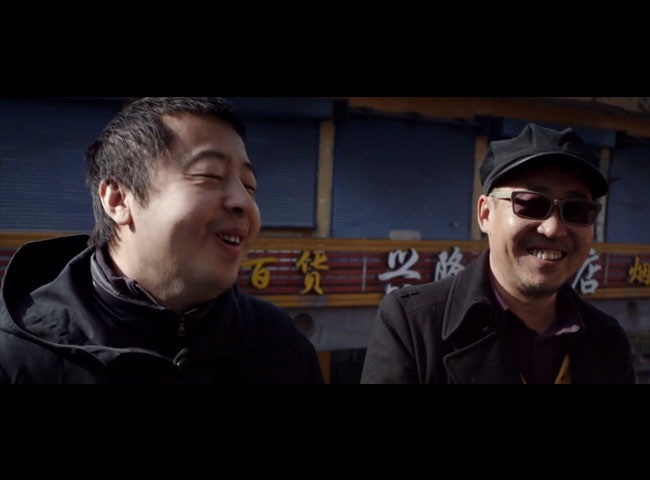Jia Zhang-ke, un gars de Fenyang
-
Réalisé par Walter Salles • Écrit par Jean-Michel Frodon, Walter Salles
-
Brésil • 2014 • 105 minutes • Couleur
- Réalisation :
Walter Salles - Écriture :
Walter Salles, Jean-Michel Frodon - Image :
Inti Briones - Son :
Li Dan-Feng - Montage :
Joana Collier
- Production (structure) :
VideoFilmes - Ayant droit :
VideoFilmes
- N° ISAN :
non renseigné
Résumé
Avec ce film Jia Zhangke retourne sur les lieux de tous ses films. Il explore la genèse de ses projets. Il rencontre ses acteurs principaux, des collaborateurs principaux, des amis et "les non-acteurs" qui sont au centre de son travail. Ceci est un portrait tendre de la mémoire de Jia Zhangke qui produit aussi une perspective particulière sur le rôle du cinéma.
Directors Jia Zhang-ke and Walter Salles share a similar approach to cinema. At the Berlinale in 1998 both men presented the films that were to make them major proponents of international auteur cinema. Xiao Wu and Central do Brasil were both filmed in original locations, and both films describe ordinary people trying to survive the brutality of their daily lives in a time of great upheaval. 'I wanted to use the camera to reveal these people’s dignity', claims Jia Zhang-ke at the beginning of Walter Salles’ documentary. Salles accompanies his Chinese colleague as he returns to the locations of his films and also visits the places where he grew up. A twofold journey through time begins. When Jia Zhang-ke walks down the streets of Xiao Wu with an actor friend, they ask themselves where all the tiny karaoke shops have gone that they used to visit as young men. The travelling players’ theatre from Platform is now missing a roof it seems. Jia Zhang-ke, um homem de Fenyang shows the radical changes in a country where one of the great filmmakers of our time created his work
Sélections et distinctions
- 2015 • Festival international du film de Berlin - Berlinale • Berlin (Allemagne) • Panorama



